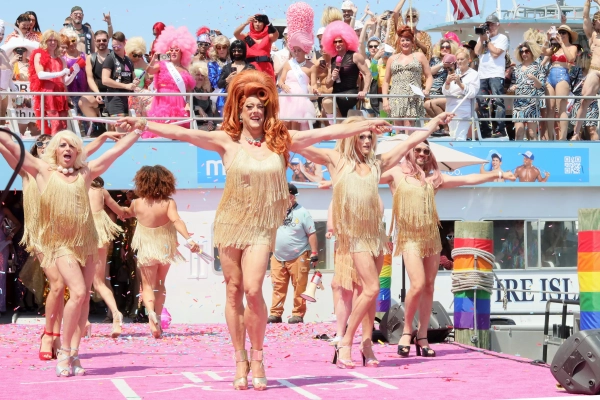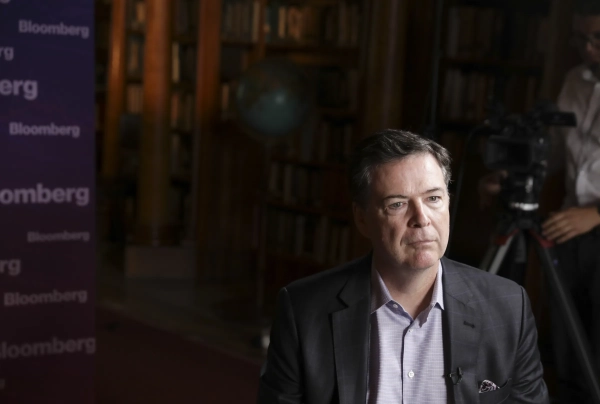
Spectrum WT v. Wendler is one of the easiest First Amendment cases the federal courts heard this year — or in any other year. The question is whether a government official can ban drag shows.
The obvious answer to this question is no. The government cannot ban drag for the same reason it cannot ban stand-up comedy, musical theater, kabuki, noh, opera, koothu, or mime. If you really need an explainer on why the First Amendment doesn’t permit the government to ban an entire theatrical style, I wrote that piece here.
SCOTUS, Explained
Get the latest developments on the US Supreme Court from senior correspondent Ian Millhiser.
Email (required)Sign UpBy submitting your email, you agree to our Terms and Privacy Notice. This site is protected by reCAPTCHA and the Google Privacy Policy and Terms of Service apply.
As the Supreme Court said in Southeastern Promotions v. Conrad (1975), a strikingly similar case about a municipal government’s attempt to bar performance of the musical “Hair,” “only if we were to conclude that live drama is unprotected by the First Amendment — or subject to a totally different standard from that applied to other forms of expression — could we possibly find no [constitutional violation] here.”
The good news for proponents of free speech is that, on Monday, the United States Court of Appeals for the Fifth Circuit handed down its decision in Spectrum WT, and that decision reached the correct conclusion that no, the government may not ban drag shows.
But for the drag performers at the heart of the Spectrum WT case, this victory must taste like ash. Though the courts eventually got around to ruling that the First Amendment protects gay people, it took them more than two years to do so. The government succeeded in barring a performance that is protected by the First Amendment for more than half of an entire presidential term.
Most of the reason why can be summarized in two words: “Matthew Kacsmaryk.” Spectrum WT arises out of the president of a public university near Amarillo, Texas’s attempt to ban drag shows at that school. And the only federal trial judge in Amarillo is Kacsmaryk, a notorious social conservative and prude who is best known for his failed attempt to ban the abortion drug mifepristone.
There are other villains in this story as well. Though the Fifth Circuit eventually got around to saying that gay people have free speech rights, too, it rejected multiple requests to expedite the case or to temporarily block Kacsmaryk’s decision allowing the drag ban while this litigation was ongoing. The Supreme Court also refused to intervene in a May 2024 decision.
Related
- The edgelord of the federal judiciary
And it’s not even clear that this saga is over. Judge James Ho, a professional troll that President Donald Trump appointed to the Fifth Circuit in 2018, dissented from the decision in Spectrum WT. The university president who lost this case may appeal to the full Fifth Circuit, which has a MAGA majority. He may also ask the Supreme Court, which is frequently hostile toward LGBTQ+ people, to hear this case.
It remains to be seen, in other words, whether the courts will eventually conclude that gay people have the right to free speech — and, if they do, how long it will take for them to reach that conclusion.
Courts can weaponize their own calendars to benefit favored litigants and delay justice for disfavored ones
Because any lawsuit filed in Amarillo will wind up before Kacsmaryk, right-wing litigants will often file their suits in that Texas city to ensure that their case is heard by a sympathetic judge. In August 2021, for example, Texas’ Republican attorney general obtained an order from Kacsmaryk requiring the Biden administration to reinstate a Trump border policy that required many migrants to remain in Mexico while their immigration cases were being processed by US officials.
Kacsmaryk’s order was clearly illegal, and the Supreme Court eventually reversed him in an opinion warning that he “imposed a significant burden upon the Executive’s ability to conduct diplomatic relations with Mexico.” But the Court sat on the case until late June 2022 — effectively making Kacsmaryk the US border czar for nearly an entire year.
But that’s not how the Court, which has a 6-3 Republican majority, operates when Trump’s lawyers ask them to intervene. When a lower court blocked Trump’s plan to fire nearly half of the Department of Education’s employees, the Republican justices gave Trump the power to do so a little more than a month after he asked them to get involved. When a lower court ordered Trump to comply with the Convention Against Torture, a treaty that the United States agreed to abide by, the Republican justices waited a little less than a month before they effectively withdrew America from that treaty.
Indeed, the Court gave Trump full or partial relief in 16 of the past 16 Trump-related cases that arrived on the Court’s “shadow docket,” expedited matters that the justices often decide very quickly and without full briefing or an oral argument.
Even when courts ultimately reach the correct legal conclusion, in other words, they can often reward litigants that they favor — and sabotage litigants that they don’t — by manipulating when they hand down their decision. In shadow docket cases, for example, the Supreme Court is only supposed to intervene early in a case when the party seeking to block a lower court decision can show that they will be “irreparably injured” without the Court’s intervention. But the Republican justices appear to have exempted the Trump administration from this requirement, even though they applied this rule to Biden.
Related
- Justice Kavanaugh just revealed an unfortunate truth about the Supreme Court
This practice, where courts can delay suits brought by disfavored parties and expedite matters brought by others, was front and center in Spectrum WT.
The case arose after West Texas A&M president Walter Wendler prohibited drag shows on campus, cancelling a planned event by a campus LGBTQ+ group in the process. Because West Texas A&M is within Kacsmaryk’s jurisdiction, the student group had no chance of winning at the trial level. Kacsmaryk is a longtime anti-LGBTQ+ activist who has claimed that being transgender is a “mental disorder” and that gay people are “disordered.” As Democratic Sen. Chuck Schumer said during Kacsmaryk’s confirmation fight, “Mr. Kacsmaryk has demonstrated a hostility to the LGBTQ bordering on paranoia.”
The Fifth Circuit, meanwhile, twice rejected requests to expedite this case. And the Supreme Court refused to grant shadow docket relief in its May 2024 order. That means that Kacsmaryk’s order stripping drag performers of their First Amendment rights, which was handed down in September 2023, has been in effect for nearly two years.
The courts’ decision to sit on this case for so long is particularly jarring, because this case involves a public university student group. As the Fifth Circuit acknowledged in its Monday decision, the Supreme Court has long held that “the loss of First Amendment freedoms, for even minimal periods of time, unquestionably constitutes irreparable injury,” so any case denying First Amendment rights to a litigant is a strong candidate for an expedited decision restoring those rights. But the argument for expedited relief is particularly strong when student groups are denied First Amendment rights, because many of those students may graduate before the courts restore those rights.
In the more than two years since Wendler unconstitutionally banned drag shows on campus, about half of the undergraduates at his school have finished their degrees. That means that they were permanently denied their right to organize a drag show, or to perform in drag on campus, during their junior and senior years. The Fifth Circuit might have reversed Kacsmaryk’s decision, but it cannot turn back time to give these graduates an experience that they may have cherished.
Wendler and Kacsmaryk, in other words, irreparably injured these students. And one of the central questions when a party asks an appellate court to swiftly block a lower court decision is supposed to be whether that party will be irreparably injured. But both the Fifth Circuit and the Supreme Court sat on their hands, nonetheless.
The legal arguments supporting drag bans are risible
If you don’t get the fact that the First Amendment prohibits government officials, including public university presidents, from banning an entire style of dramatic performance, then “judge” is not the right job for you. Nevertheless, Ho did dissent in the Spectrum WT. His argument is…unusual.
The crux of Ho’s argument is that courts should defer to Wendler’s conclusion that drag shows are inherently sexist. In a letter justifying his decision to ban drag, Wendler claimed that drag denigrates women in the same way that blackface performances denigrate African Americans. “As a university president, I would not support ‘blackface’ performances on our campus,” Wendler wrote. “I do not support any show, performance or artistic expression which denigrates others—in this case, women—for any reason.”
There are so many problems with this argument that it is hard to know where to begin. Drag shows and blackface are superficially similar in that one involves people who are not Black masquerading as Black people, and the other typically involves people who are not women dressing as if they were. But the similarities end there. Blackface exists to degrade Black people. Drag shows exist to lampoon gender roles, not to convey that women are inferior to men.
But none of that matters for a very simple reason: Blackface is protected by the Constitution, as is all kinds of offensive speech. In Snyder v. Phelps (2011), for example, the Supreme Court held that members of an anti-gay church have a First Amendment right to protest military funerals with signs displaying anti-gay slurs and messages like “Thank God for Dead Soldiers.” Racial slurs, racist or sexist performances, and all kinds of other despicable speech are all protected by the First Amendment.
Thus, even if Wendler were correct that drag is akin to blackface, it wouldn’t matter. The First Amendment protects blackface.
That said, the Supreme Court has held that public schools may sanction speech that “materially disrupts classwork or involves substantial disorder or invasion of the rights of others.” This is why public school teachers may put a student who interrupts their lessons in detention. So, a public university president might be able to bar a blackface performance if they can show that it would so offend the student body that it would disrupt the school’s ability to educate. But there’s no evidence that West Texas A&M classrooms would be disrupted because of a drag show.
Ho attempts to get around all of this law by pointing to the Supreme Court’s decision in Christian Legal Society v. Martinez (2010), which held that public universities may require campus groups to adopt an “all-comers” policy — meaning that they must allow any student who wants to join the group to join — if those groups want to receive certain benefits and subsidies from the university. The plaintiff in Christian Legal Society, a campus group that wished to bar students who engage in “unrepentant homosexual conduct,” claimed that this policy violated their First Amendment right to free association.
Ho appears to argue that, because the anti-gay group in Christian Legal Society could not rely on the First Amendment to overcome the all-comers policy, it follows that the student group at issue in Spectrum WT also cannot invoke its First Amendment rights. But it is well-established that anti-discrimination laws can overcome the right to free association. If they couldn’t, then all such laws would be unconstitutional. A law barring race discrimination in hiring, for example, forces white supremacist employers to associate with non-white workers.
Christian Legal Society would apply to the student group in Spectrum WT if it tried to bar straight students from joining (assuming, of course, that West Texas A&M has an all-comers policy), and it might apply if they attempted to exclude some students from attending the drag performance. But it has nothing to say about whether a public university president may ban certain performances on campus.
Ho’s opinion, in other words, is quite wrong. But it should stand as a warning to anyone who hopes to invoke their constitutional rights in the future. Ho is widely viewed as a leading candidate for promotion to the Supreme Court in Trump’s second term. And the more time Trump spends in office, the more judges like Kacsmaryk and Ho he can appoint to the bench.
There may soon be many communities like Amarillo, in other words, where constitutional rights go to die.
Source: vox.com






